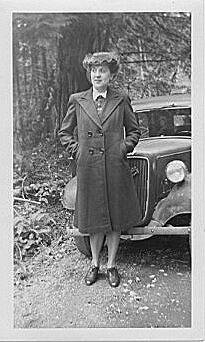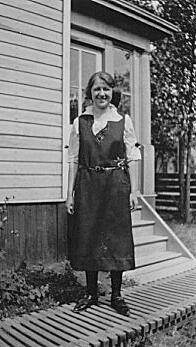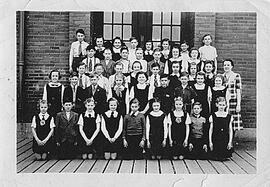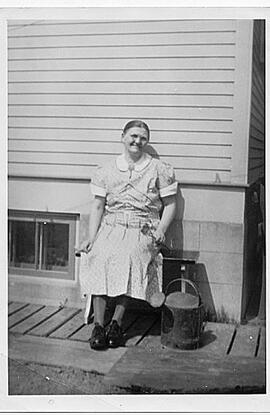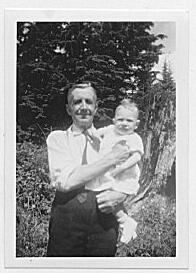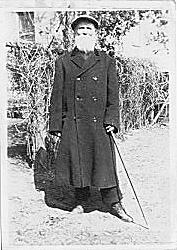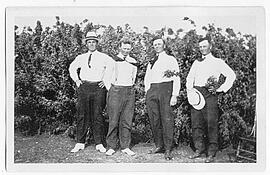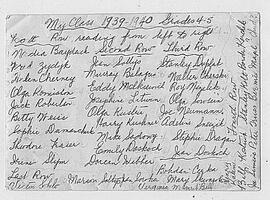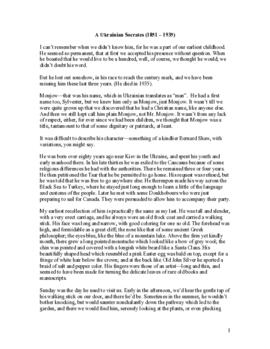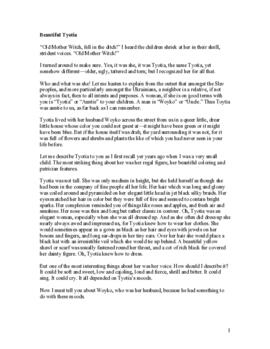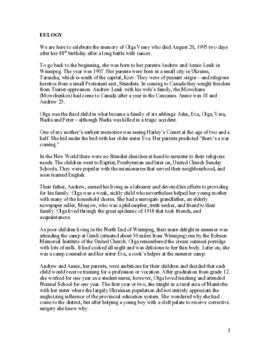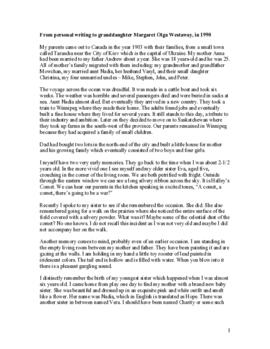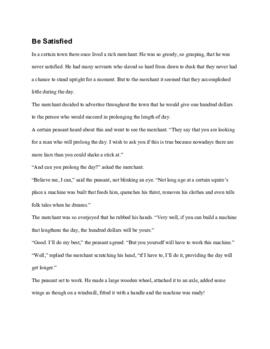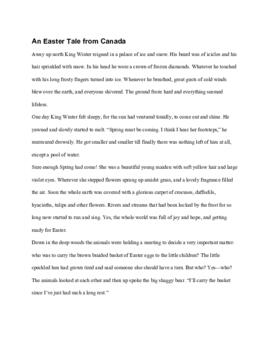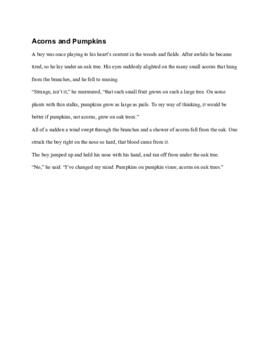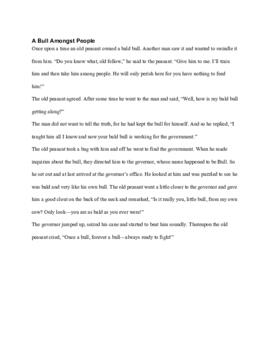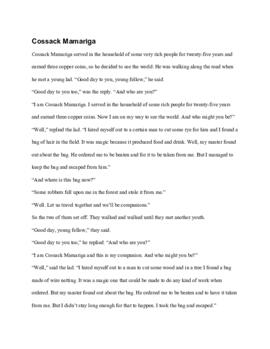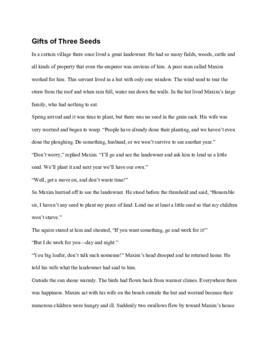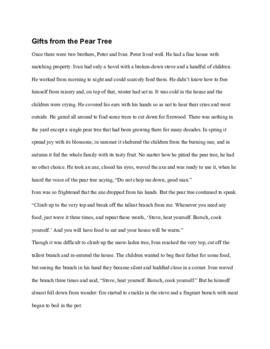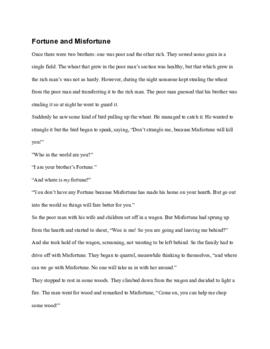Title and statement of responsibility area
Title proper
General material designation
Parallel title
Other title information
Title statements of responsibility
Title notes
Level of description
Reference code
Edition area
Edition statement
Edition statement of responsibility
Class of material specific details area
Statement of scale (cartographic)
Statement of projection (cartographic)
Statement of coordinates (cartographic)
Statement of scale (architectural)
Issuing jurisdiction and denomination (philatelic)
Dates of creation area
Date(s)
-
[1931-1990s] (Creation)
- Creator
- Vesey, Olga
Physical description area
Physical description
3 cm of textual records
8 images
Publisher's series area
Title proper of publisher's series
Parallel titles of publisher's series
Other title information of publisher's series
Statement of responsibility relating to publisher's series
Numbering within publisher's series
Note on publisher's series
Archival description area
Name of creator
Biographical history
Olga's parents Anna and Andrew Lesik were Stundists who came to Canada in 1903 with their families from a small town called Tarascha near Kiev, Ukraine. Her mother Anna had been married to her father Andrew about a year by then. She was 18 years-old and he was 25. All of mother’s family migrated with them including: Anna's parents Mowchan, Olga's married aunt Nadia, her husband Vasyl, and their small daughter Christina, and her four unmarried uncles – Mike, Stephen, John, and Peter. They settled in Winnipeg, the adults found jobs and eventually built a fine house where they lived for several years. Later they decided to move to Saskatchewan where they took up farms in the south-west of the province. Anna and Andrew had children: John Lesik, Eva (Lesik) Babiuk, Vera Lesik (Vera Lysenko), Olga (Lesik) Vesey born 1907, Nadya and Peter.
Olga graduated from Normal School and taught in rural Manitoba. Because of poor health, Olga moved to teach in Winnipeg. After a number of years teaching her health gave way and she had to resign her position. Olga decided to move to British Columbia. For a short while she taught in interior BC, and then moved to Vancouver and then to Vancouver Island where she worked as a principal of a four-roomed school. Olga got married and had her daughter Nina in Victoria. Since Olga's husband didn't have a job, they had to move to Vancouver where they stayed first with Olga's sister Vera Lysenko. Their son David was born with the serious heart condition and he died during heart surgery at the age of six. Olga taught Aboriginal children in Bella-Bella, on the Campbell Island. Eventually she returned to Vancouver, and in 1962 they bought a house in North Vancouver.
Olga's brother John Lesik was the first Ukrainian-Canadian in all of Canada to become a dentist, practicing in Alberta and Ontario. Her sister Eva (Lesik) Babiuk raised three children on her own, working at the Hotel Vancouver until retirement. Vera Lesik (pen name Vera Lysenko) worked as a journalist and was one of the first Ukrainian-Canadians writing in English: Men in Sheepskin Coats, Westerly Wild, and Yellow Boots. One sibling (Nadya) died in a street car accident at an early age. The youngest brother, Peter Lesik was a radio operator in the Second World War.
Olga was a member of the Women’s International League for Peace and Freedom, hosting yearly garden parties. She translated stories from Ukrainian and some of these were published in The Flying Ship. Some of her translations were African folk tales and stories from ethnic regions from the former Soviet Union—still unpublished. She studied Russian at night school and with a private teacher. Later on in her life she went to UBC part-time, enrolling in upper grade Slavonic Studies, where she studied Ukrainian, the Russian language, Russian history, art and culture, and translation. She finished fourth year studies at the age of 76, having achieved excellent grades. In her eighties she helped to re-publish her sister Vera Lysenko’s novel Yellow Boots.
Custodial history
Scope and content
The collection consists of 78 Ukrainian folk tales translated by Olga Vesey, two of her stories: "A Ukrainian Socrates" and "Beautiful Tyotia", eulogy by Nina Westaway, Olga's biography from her personal writing to granddaughter Margaret Olga Westaway in 1990, and family photographs. One collection of Olga's translations of Ukrainian folk tales was published in 1975 as The Flying Ship, which was an award winning children's book. Before she died in 1995, she asked her daughter Nina to publish her stories. Some of them have appeared in other English publications, but have never been published as a collection.
The collection is organized in three series: first contains Olga Vesey's biographical and autobiographical materials, second - translations of Ukrainian folk tales, and third - short stories by Olga Vesey.
The Kule Folklore Centre created an online project featuring this collection and its materials, some of them full text: http://www.ukrfolk.ualberta.ca/ProjectsandResearch/OnlineResources/OlgaVeseyFolkTales.aspx
Notes area
Physical condition
Immediate source of acquisition
Gift of Nina Westaway, daughter of Olga Vesey
Arrangement
Language of material
- English
Script of material
Location of originals
Availability of other formats
Restrictions on access
No restrictions on access.
